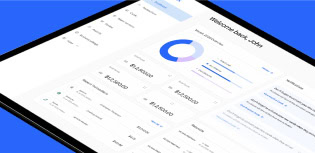Personal vs. Company Cards

Employees often need to make purchases on behalf of their companies—whether it’s restocking supplies, fueling vehicles, or entertaining clients. Determining whether they should use personal vs. company cards is a pivotal decision that affects your organization’s efficiency, employee satisfaction, and financial management.
The Role of Virtual and Prepaid Cards
As businesses weigh personal versus company cards, a middle-ground option gaining traction is virtual and prepaid expense cards. These cards combine the control of company cards with flexibility, offering real-time oversight and spend controls. They can reduce the burden of reimbursements, enhance record-keeping, and mitigate risks like fraud or overspending.
Key considerations to help you decide on personal vs. company cards
- Employee Financial Wellness
For some employees, particularly those in entry-level roles, covering large business expenses upfront can create financial strain. This can result in delayed reimbursements affecting personal cash flow or even causing damage to credit scores due to late payments on their personal cards. Using company-issued or prepaid cards directly avoids this issue and improves overall job satisfaction.
- Simplifying Expense Tracking and Reporting
Tracking and managing expenses become significantly easier with company cards or virtual cards. With tools like PEX, finance teams can centralize records, streamline reconciliation processes, and integrate transactions with accounting systems like QuickBooks or Sage Intacct. Manual reimbursement processes, by contrast, are often prone to delays and errors, complicating month-end closes.
- Risk of Fraud and Misuse
Company cards, particularly with customizable spend limits and merchant restrictions, minimize the risks of fraud and unauthorized use. Virtual cards excel here by offering additional controls, such as limiting transactions to specific vendors or amounts, ensuring compliance with company policies.
- Tax and Compliance Implications
When employees use personal cards, the reimbursement process may inadvertently complicate compliance. Company-issued cards streamline expense tracking, ensuring adherence to tax reporting requirements. Moreover, companies can avoid potential liabilities associated with employee rewards points from personal card usage, which in certain cases might be considered taxable income.
Balancing Policy and Employee Preferences
Implementing a fair expense policy that considers both company goals and employee convenience is crucial. Companies should seek input from employees on their preferences while explaining the advantages of standardized practices. Introducing tools like PEX’s virtual cards can strike a balance, providing flexibility for employees and control for the finance team.
Personal vs. company cards: In a nutshell
Using personal vs. company cards is not always an easy decision to make. Whether you lean toward personal or company cards, the decision should reflect your organization’s values and operational needs. Leveraging modern expense management tools, such as virtual or prepaid cards, can provide the best of both worlds—offering security, efficiency, and ease for all stakeholders.
Similar resources
Opinions, advice, services, or other information or content expressed or contributed here by customers, users, or others, are those of the respective author(s) or contributor(s) and do not necessarily state or reflect those of The Bancorp Bank, N.A. (“Bank”). Bank is not responsible for the accuracy of any content provided by author(s) or contributor(s).








